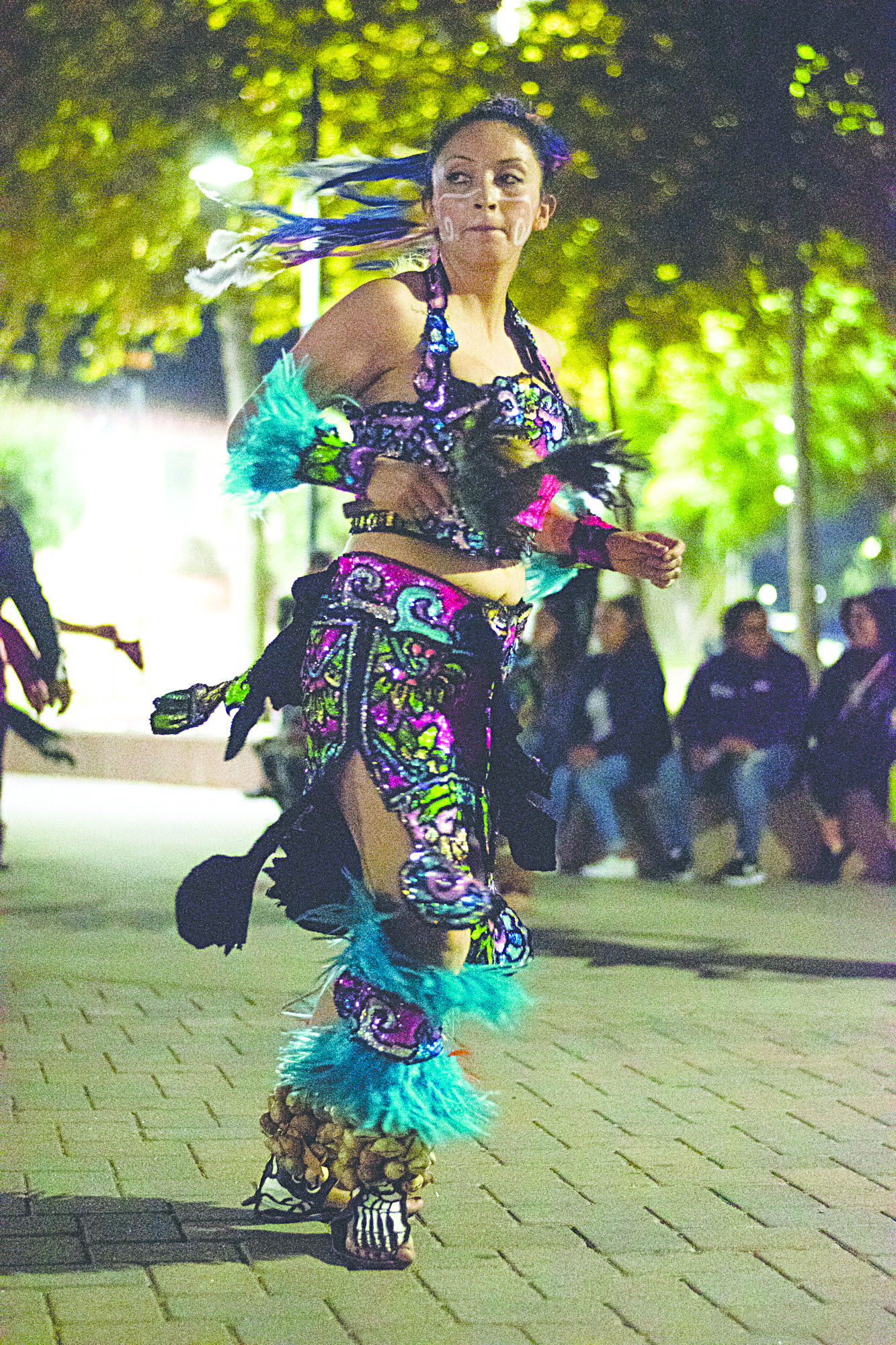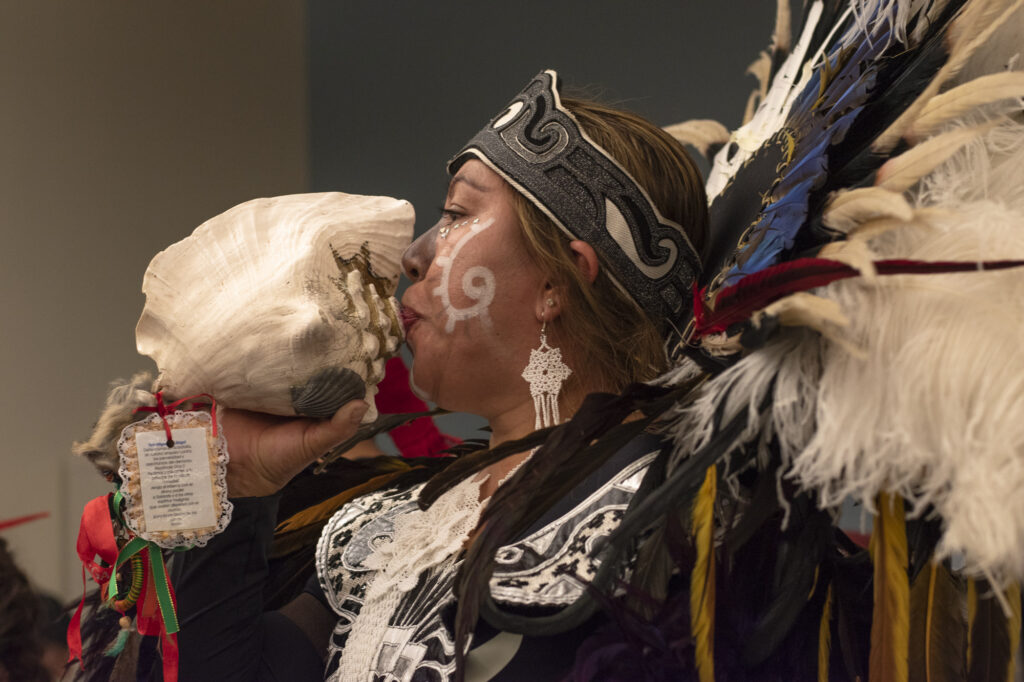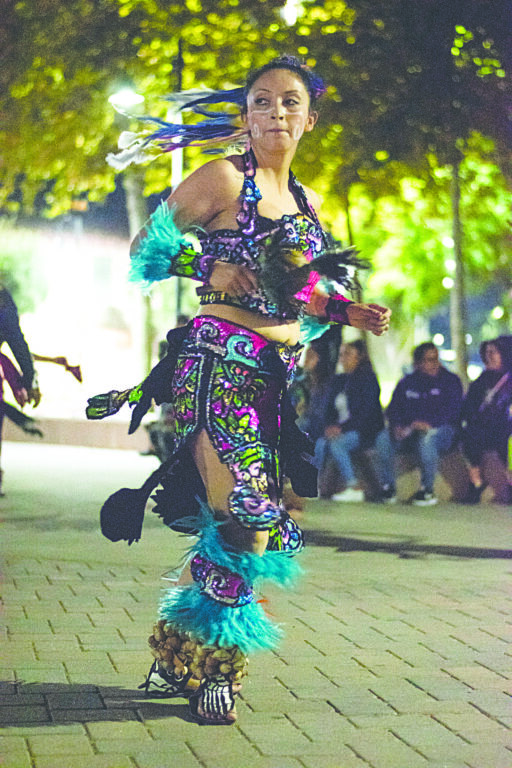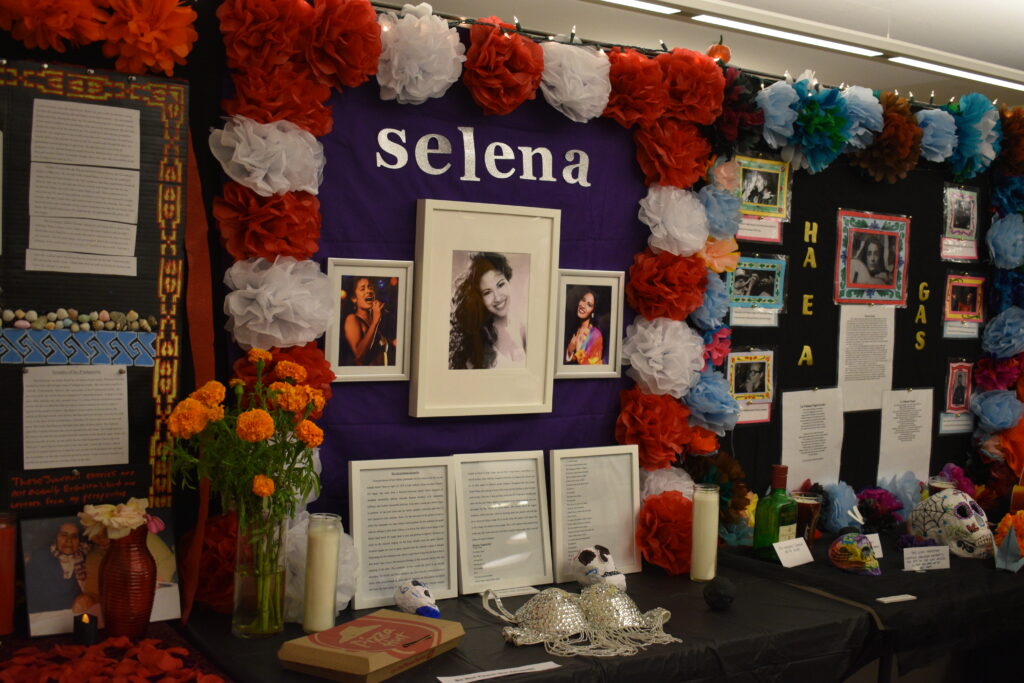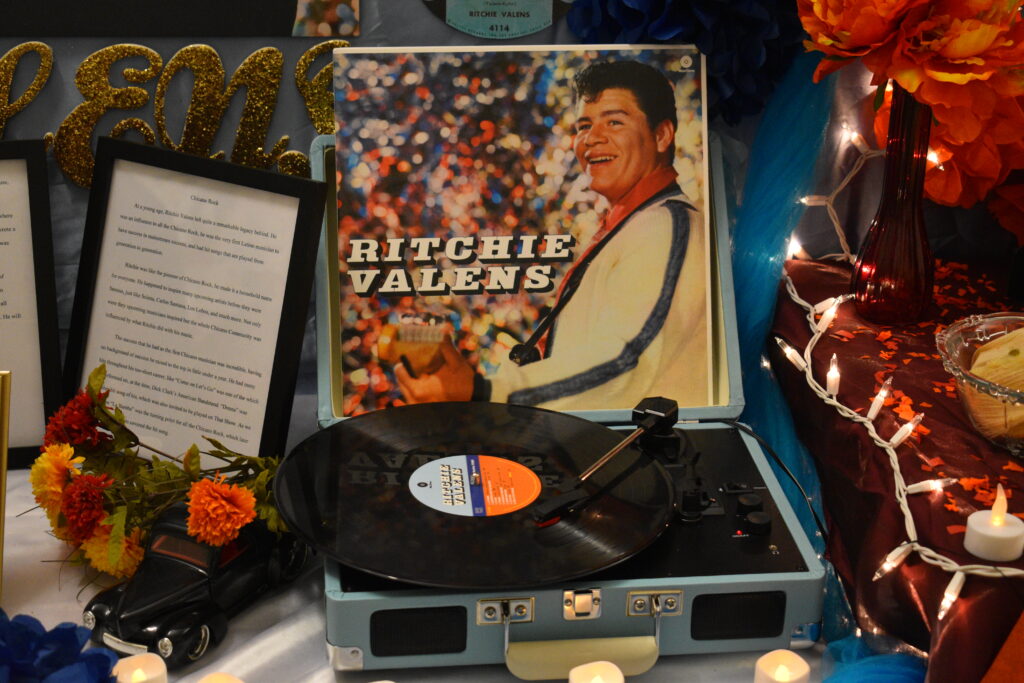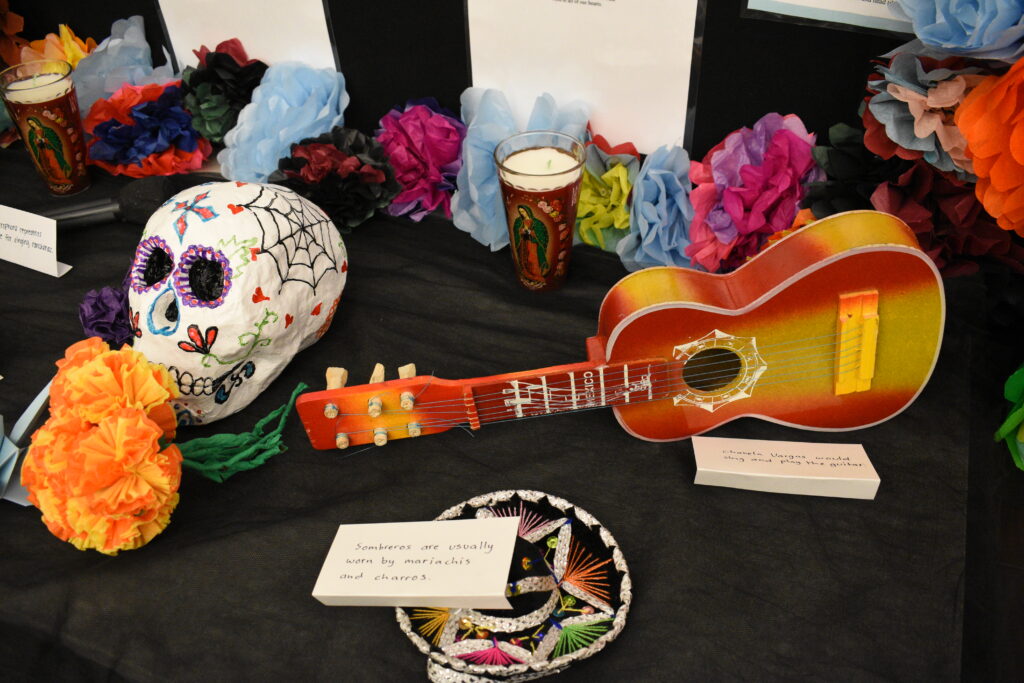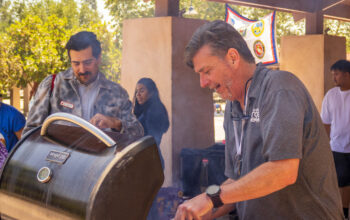Pierce is a learning institution, but last week it became a welcoming site of the deceased ancestors for those who celebrate the Day of the Dead.
Family, friends and students gathered inside the Student Engagement Center to honor “ofrendas” (altars) of late relatives and Chicano/a artists for Día De Los Muertos, hosted by Movimiento Estudiantil Chicano (a) de Aztlán (MEChA) members and Associated Students Organization (ASO).
Ofrendas allows people to remember and honor the memory of their late relatives and ancestors.
A group of Aztec dancers were outside along with from Homeboy Industries and “Ajolote” who honored ancestors and brought the Pierce College community together.
“Our dance [is] our form of sharing what comes from our heart, our prayers, our inner dance, honoring the four sacred elements of life, earth, wind, water and fire, honoring, give of life, mother earth, honoring the energy that comes from the sun and everything that our ancestors understood about the constellations spirit of the plants and the animals,” said Ajolote member Freddie Chavez, who is acknowledged as “Tata.”
“Honoring our agricultural, scientific, philosophical, social, economic, political and military achievements come from thousands of years of descendants of the original people of this indigenous continent,” Chavez said.
Chavez said what happened at the event is the result of the awakening of the ancestral memory. He said that the students who made the altars were with good energy and intent.
“We come, and we compliment everyone,” Chavez said. “We always moved to the left. We start always to the left because our left arm is the one that’s closest to the heart. We the people who worked through the heart. And so, our intention is that’s where the spiritual is – through the heart and we need to acknowledge that that’s who we are.”
Chavez said that the drums and dances call everyone.
“The drums are a representation of the heartbeat of mother earth,” Chavez said. “That’s why you have so much participation because it’s awakening everyone, and people get excited. That’s why we’re here. That’s our intent. To remind each other. We need to remind each other and acknowledge each other of who we are. We are the people with dignity, with the people of the heart.”
Angel Sanchez, an attendee who has gone to past Día De Los Muertos events outside of Pierce College, said the dancers helped “bring souls back and remember who they were.”
“[The dancers] are here to bless their souls and use a ritual to protect their souls in the afterlife and to keep all the bad spirits away from them and to have them remembered in our life that we live now,” Sanchez said. “So, it’s very special.”
Sanchez said he takes Día De Los Muertos to heart.
[I have] the blessing to be able to remember my grandparents and do this every year to enrich their souls and their beings here,” Sanchez said.
MEChA adviser Angelita Rovero said this is their fifth annual tradition at the campus. She said the 42 students who created the altars were from the “Mexican American Arts and American Culture” course.
“Every [altar is] hand-made; nothing store-bought to bring awareness and celebration of life of those that have passed on,” Rovero said.
Rovero said she thinks about 200 people came to the event. She said it created a community for all Pierce families to arrive and bring pictures of their relatives.
“You celebrate with food, you celebrate with blessings and you celebrate with family,” Rovero said.
MEChA member Felipe Romero said the tradition builds a sense of community from people of similar backgrounds and those who are unaware about what Día De Los Muertos is.
“[It’s] kind of a welcoming to everybody,” Romero said. “And it makes us all feel where there’s a place where we’re all seeing we’re all valid. It’s in celebration of all our loved ones who have passed. It’s really nice to see everybody come in and commemorate everybody and feel that sense of warmth from family even though we’re all just students on campus.”

